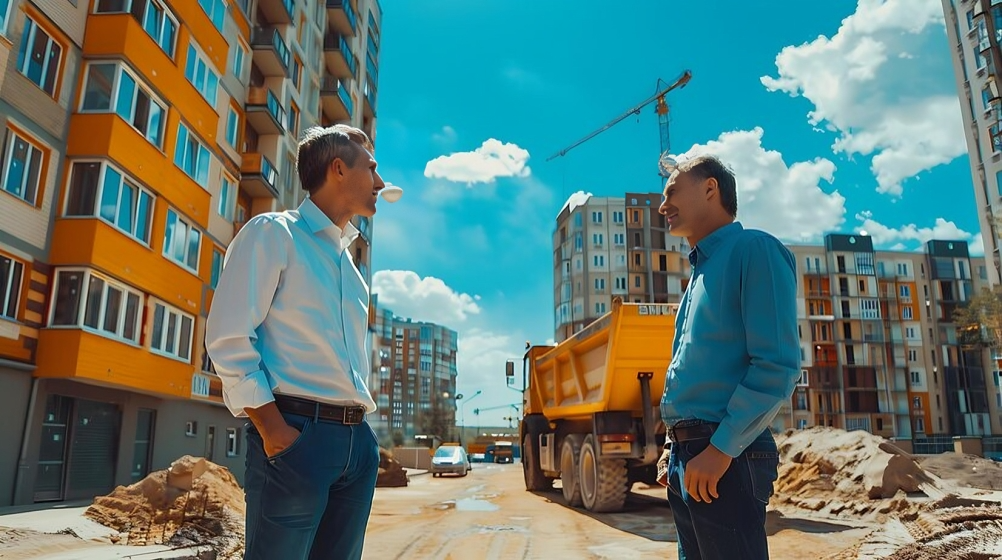
Starting a demolition project is a major undertaking that requires careful planning and attention to detail. Whether you’re tearing down a single building or multiple structures, overlooking key factors can lead to delays, budget overruns, and even safety hazards. This blog post will outline the 10 most important considerations before initiating a demolition, ensuring that your project proceeds smoothly and efficiently.
Introduction
Demolition is not just about bringing down a building; it’s a complex process that involves coordination, legal requirements, safety measures, and environmental considerations. Whether you’re a property owner, contractor, or developer, understanding the ins and outs of a demolition project is crucial for its success. Careful preparation not only helps you avoid potential pitfalls but also ensures that the work is carried out in compliance with all relevant regulations.
If you’re planning a demolition in Buckinghamshire or similar areas, having a comprehensive checklist in place can make the difference between a smooth project and a costly mistake. Let’s explore the 10 key factors you should consider before breaking ground on your demolition site.
1. Assessing the Site and Structure
Before any demolition work begins, a thorough assessment of the building and surrounding site is essential. This includes understanding the building’s structure, materials used, and any potential hazards such as asbestos or lead paint. You should also evaluate the surrounding environment to ensure there are no nearby structures, utilities, or natural features that could be affected by the demolition.
2. Compliance with Local Regulations
Demolition projects must adhere to a variety of local, state, and national regulations. Before starting, you’ll need to obtain the necessary permits and ensure that your project complies with all zoning laws and environmental standards. Regulations may include guidelines for waste disposal, noise levels, and operating hours, all of which can affect the timeline and cost of your project.
3. Hiring Experienced Professionals
Demolition is a specialized field that requires skilled professionals to execute safely and effectively. Hiring an experienced demolition Buckinghamshire company can save you time and money while ensuring that the project is completed to the highest safety standards. A reputable contractor will also be familiar with local regulations and can help navigate the permitting process.
4. Safety Considerations
Safety should be the top priority on any demolition site. A detailed safety plan should be developed that includes protective gear for workers, site boundaries to keep unauthorized personnel away, and contingency plans for unexpected incidents. Regular safety briefings and training for the crew can help prevent accidents and ensure compliance with occupational safety guidelines.
5. Environmental Impact
Demolition projects can have significant environmental effects, including dust, noise, and the release of hazardous materials. To minimize the environmental footprint, consider recycling materials such as metal, concrete, and wood whenever possible. Additionally, you’ll need to follow specific guidelines for safely disposing of hazardous substances to avoid contamination.
6. Utility Disconnections
Before you begin any demolition work, it’s crucial to disconnect utilities such as gas, electricity, water, and sewage systems. Failure to do so can lead to dangerous situations, including gas leaks, electrical fires, or flooding. Contact the appropriate utility companies to safely disconnect all services before work begins.
7. Timeline and Budget Planning
Demolition projects can be unpredictable, and it’s important to have a realistic timeline and budget in place. Unexpected issues, such as the discovery of hazardous materials or structural problems, can lead to delays and increased costs. Factor in a contingency budget and build some flexibility into your schedule to accommodate these potential challenges.
8. Waste Management and Disposal
One of the biggest aspects of a demolition project is waste management. Before starting, make sure you have a clear plan for sorting, recycling, and disposing of debris. This includes working with local waste disposal services to ensure that materials are handled in accordance with environmental laws. Proper waste management can also help reduce disposal costs and the overall environmental impact of the project.
9. Noise and Vibration Control
Demolition work can cause significant noise and vibrations, which may disturb nearby residents or businesses. It’s important to implement noise control measures, such as scheduling work during permitted hours and using noise barriers where necessary. Monitoring vibration levels can also prevent potential damage to nearby structures.
10. Planning for Post-Demolition Cleanup
Once the demolition is complete, there’s still the matter of clearing the site for future use. This includes removing all debris, leveling the ground, and ensuring that the area is safe for redevelopment. Post-demolition cleanup should be factored into your project timeline and budget to ensure that the site is ready for the next phase of construction.
Conclusion
In conclusion, careful planning and consideration of key factors are crucial to the success of any demolition project. By addressing issues such as site assessments, local regulations, safety, and environmental impact, you can avoid common pitfalls and ensure that your project is completed efficiently and within budget. Whether you’re demolishing a small residential building or a large commercial structure, taking the time to prepare properly will save you both time and money in the long run.
For those undertaking a demolition in Buckinghamshire, it’s essential to partner with experienced professionals who understand local requirements and can guide you through the complexities of the process. With the right team and a well-thought-out plan, you can ensure that your demolition project proceeds smoothly from start to finish.



